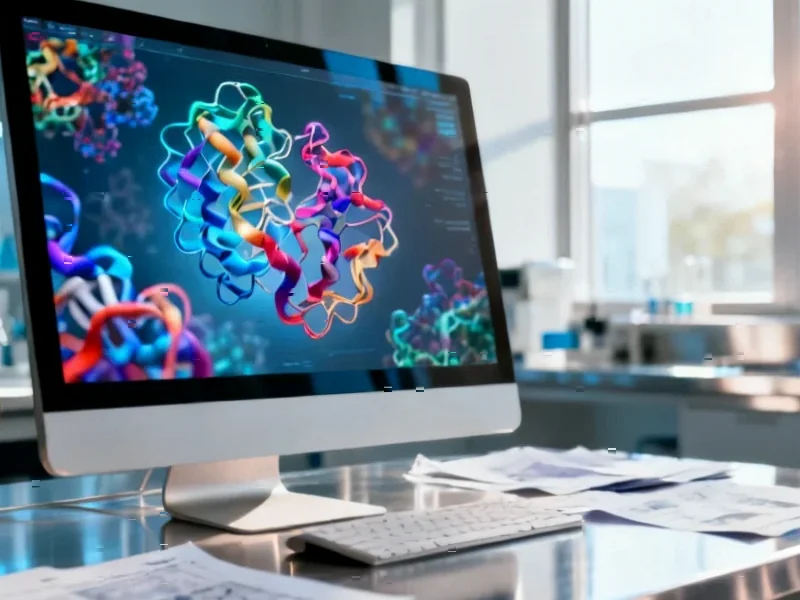According to Financial Times News, a team led by Nobel Prize-winning scientist David Baker has achieved a major breakthrough in drug development using artificial intelligence. Their research, published Wednesday in Nature, demonstrates how a generative AI model called RFantibody can design entirely new functional antibodies from scratch. The University of Washington researchers successfully created antibodies that bind to actual cancer proteins, which is particularly challenging since tumors often differ from normal cells by just a single protein. This AI-driven approach could reduce antibody discovery from months to weeks while eliminating the need for animal immunization tests. Baker, who won the Nobel Prize in Chemistry last year, called this a “step change” for the pharmaceutical industry. The technology represents a shift from traditional random library selection methods toward rational design approaches.
Why this matters
Here’s the thing about traditional antibody development – it’s basically expensive guesswork. Scientists inject animals, wait months for immune responses, then screen thousands of possibilities. It’s laborious, time-consuming, and frankly, not very precise. This AI approach lets researchers literally point to a target protein and say “design an antibody that binds here.” That level of specificity is game-changing.
Think about what this means for cancer treatment development. Finding antibodies that distinguish between tumor cells and healthy ones has always been incredibly difficult. Now researchers can essentially custom-order antibodies for specific protein targets. It’s like going from throwing darts blindfolded to having a laser-guided targeting system.
The bigger picture
This isn’t just about making existing processes faster – it’s about enabling entirely new approaches to drug design. When you can rapidly prototype antibodies against specific targets, you can explore therapeutic avenues that were previously too difficult or expensive to pursue. The team’s AI model builds on their previous protein design work, but this antibody-specific tuning is what makes it so powerful for pharmaceutical applications.
But let’s be real about the limitations. This accelerates the earliest stages of drug development, but it doesn’t magically solve the clinical trial and regulatory approval processes that take years. Still, cutting months off the discovery phase is huge. Every month saved means potentially getting treatments to patients faster.
What’s next
The obvious question is: can this actually produce viable treatments? The researchers demonstrated binding to cancer proteins, but the real test will be whether these AI-designed antibodies can become finished drugs that work in humans. That’s the next hurdle.
I suspect we’re going to see a flood of similar AI approaches in biotech. When Nobel laureates call something a “step change,” the industry pays attention. This could fundamentally reshape how we think about drug discovery, moving from biological screening to computational design. The team has already co-founded Xaira Therapeutics to commercialize this technology, which tells you they’re serious about real-world applications.
Basically, we’re witnessing the beginning of a major shift in biopharma. The tools are getting smarter, the processes more precise, and the timelines shorter. It’s an exciting time for anyone interested in the intersection of AI and medicine.




